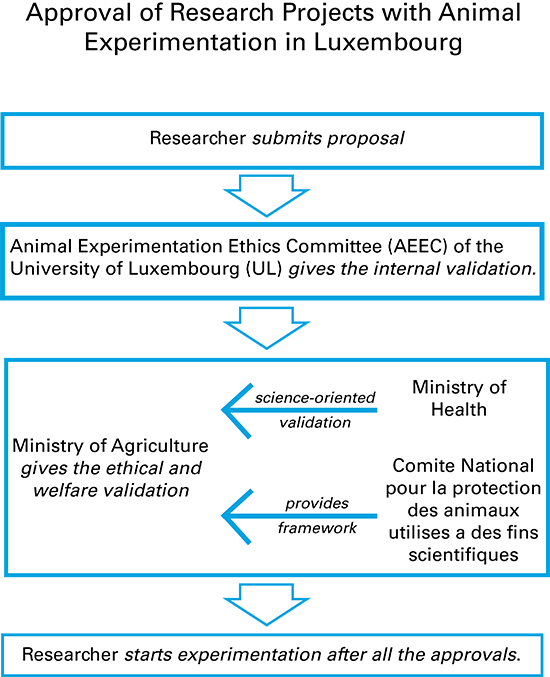How Luxembourgish law protects animals
The Ministry of Agriculture has strict regulations governing the use of animals for research. Legal protections for research animals far exceed those for pets, livestock or any other animals.
The laws governing scientific research using animals are set out in the Règlement grand-ducal adopted in 2013 in line with the European Directive, and include regulations on housing, environment, welfare, care, and health.
Permission to work with animals is only granted under authorization from the Ministry of Agriculture and the Ministry of Health. Projects are assessed by weighing the benefits of the proposed research project against the likely cost to the animals’ well-being. The Ministry of Agriculture makes unannounced inspections to check that the terms of the project authorizations are being adhered to and that high animal welfare standards are being maintained. Inspectors can check anything at the facilities, including the conditions of the animals and their housing, staff training records and the culture of care at each establishment based on interviews with staff.
Before research on animals can be authorized, two separate licenses are required:
- A facility license for the place at which the work is carried out; LCSB holds two licenses for its animal facilities of Campus Belval
- A project authorization for each research project; only granted if the potential benefits are important enough, the research cannot be done with non-animal methods and any discomfort to the animals is minimized
Once a project application has been scrutinized and approved by the Animal Experimentation Ethics Committee of the University of Luxembourg, it is then submitted to the Ministry of Agriculture for approval.
